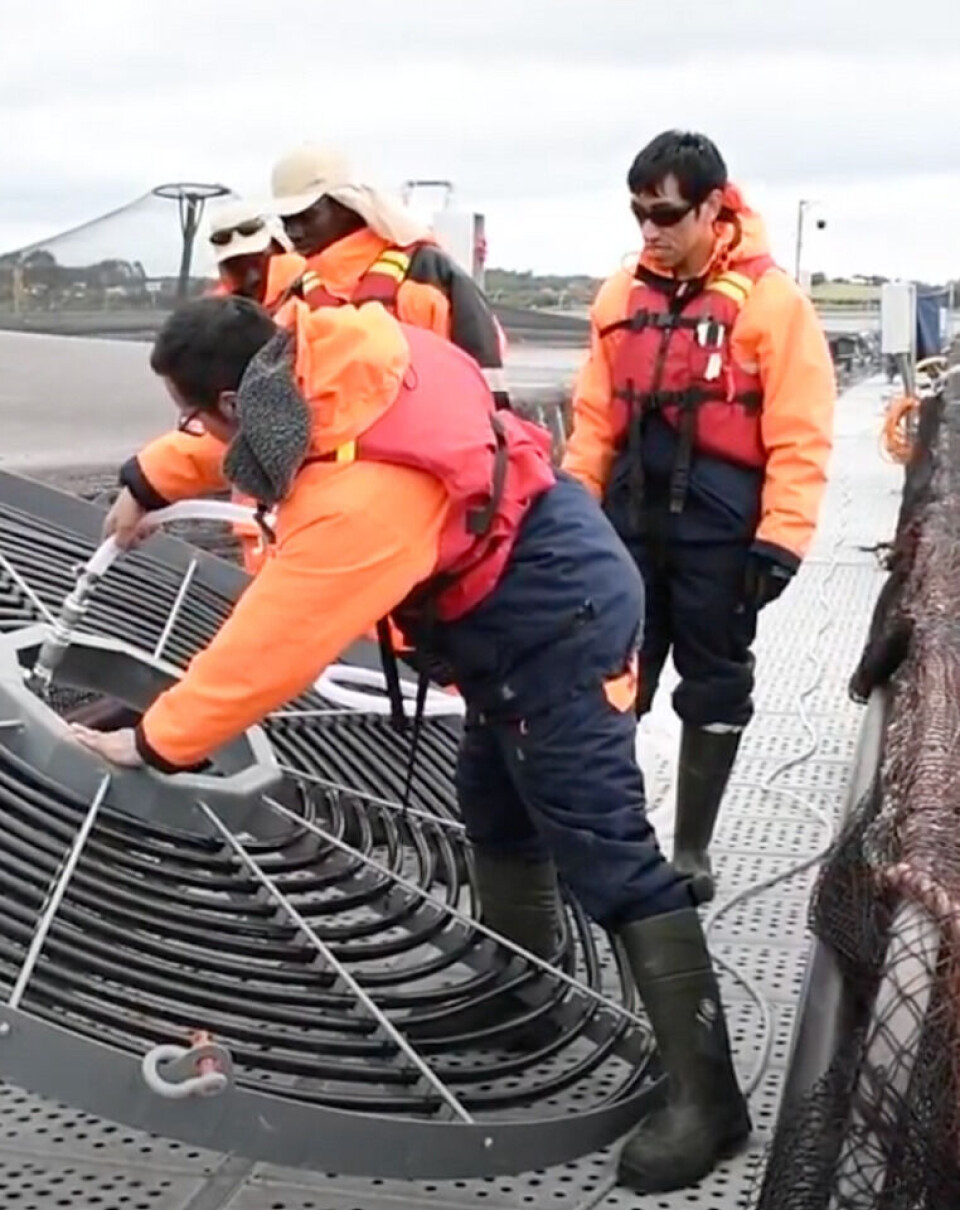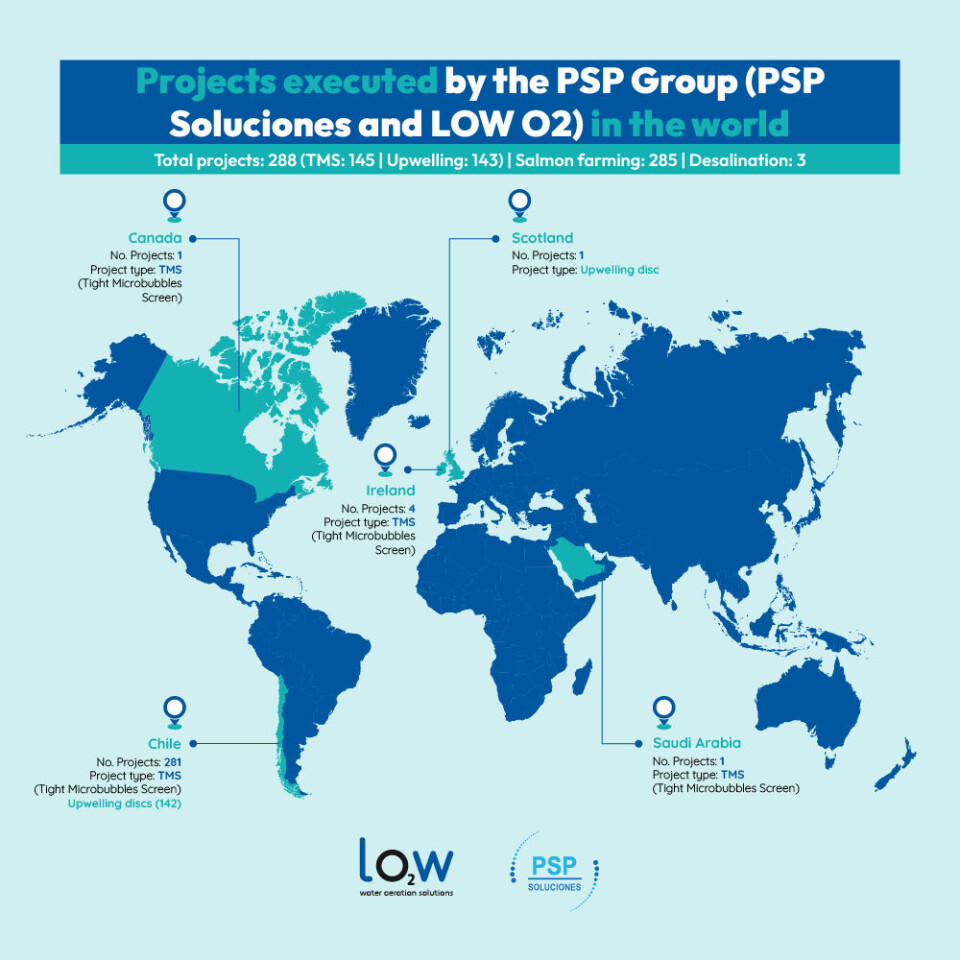
Chilean microbubble company on the rise in Scotland
Group which ‘protects more than 40 million fish’ dispatches upwelling disc to UK and is in talks to deliver bubble curtain
Chilean company PSP Group, which supplies aeration systems and bubble curtains to protect farmed salmon from algal blooms and low oxygen events, has dispatched an upwelling disc to Scotland and is also in discussions to install a tight microbubbles screen (TMS) at a Scottish farm.
Fish Farming Expert understands that the upwelling disc is for Mowi Scotland, which was recently granted £47,000 by the Scottish Government towards the £157,000 cost of an aeration disc to be tested at its Seaforth site. The disc system will be installed next month.
PSP Group has also been active in Ireland, where it has implemented three TMS systems, all of which are fully operational, and in Canada, where it has completed the installation of two TMS projects.

61 projects in 2023
Last year, PSP’s subsidiaries Low O2 and PSP Solutions implemented 61 projects, mostly in Chile. They installed more than 48.4 kilometres (30 miles) of laminar flow microbubble barriers and carried out 36 upwelling projects at fish farms.
“In 2023, in the aquaculture industry and particularly in the salmon industry, the challenge was and continues to be major due to the El Niño phenomenon that has influenced an increase in algae bloom events in southern Chile, in terms of quantity, frequency and intensity, increasing the risk of mass mortality,” said PSP Group.
“Through its mitigation systems, PSP managed to protect more than 40 million fish, which translates into more than 200,000 tons of fish that will successfully complete their production cycle.”
Running costs
One question mark that hangs over microbubble curtains is the cost of generating the barriers, which was rumoured to have been as high as €10,000 per week in Ireland.
PSP Group gives much lower figures.
“The estimated energy cost for an area of 58,000 square metres of diffuser surface, equivalent to 14 square cages of 40 x 40 metres connected to the grid 24 hours a day for a week, is approximately €4,500,” a spokesman for the company said.
“This calculation is based on the assumption of a harmful algal bloom (HAB) event. However, if we consider the usual maintenance usage of around eight hours of operation per week, the equivalent cost would be €214. These calculations are based on a cost of €100 per 1,000 kilowatt-hours. Nevertheless, other variables should be considered that could affect costs.”
Noise barrier
During 2023, PSP also obtained new validations of its barrier systems to attenuate underwater noise by an average of 20 dB, in a frequency range of 20 to 20,000 Hz, with the Institute of Acoustics of University of Southern Chile and with the Naval Technology Centre of Murcia.
The validations certify the technology for use against various sources of high-energy anthropogenic noise such as pile driving, blasting, marine drilling and dredging, among others, which affect marine fauna, mainly whales.
“The key difference that has made the PSP group a world leader is its patented technology and that each project we undertake is a unique combination of engineering, technology, experience and field work, which considers both the industry and the particular characteristics of the areas where it is implemented,” said Bruno López, founder and general manager of PSP Solutions.
“Today we seek to offer more applications and thus add more value with the use of our technologies. To this end, in 2024 we plan to continue investing heavily in new developments together with universities, institutes, research centre, laboratories and other entities.”























































